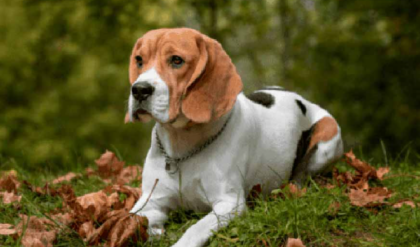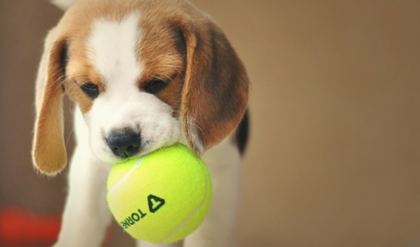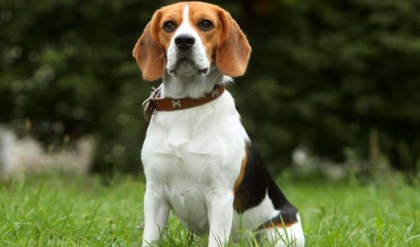Bringing a Beagle puppy into your home is an exciting and rewarding experience. These friendly, energetic dogs make wonderful companions, but they require proper care and attention to thrive. This comprehensive guide will walk you through everything you need to know about caring for your new Beagle puppy, from preparation to daily care and beyond.

Preparing for Your Beagle Puppy’s Arrival
Before bringing your new furry friend home, it’s essential to prepare your living space and gather necessary supplies. This preparation will help ensure a smooth transition for both you and your puppy.
Puppy-Proofing Your Home
Beagle puppies are curious and energetic, which means they can get into trouble if your home isn’t properly secured. Here are some steps to puppy-proof your living space:
- Remove or secure loose wires and cords
- Store household chemicals and medications out of reach
- Close off access to small spaces where a puppy could get stuck
- Remove toxic plants from your home and yard
Remember, puppy-proofing is an ongoing process. As your Beagle grows and becomes more adventurous, you may need to make additional adjustments to keep them safe.

Essential Supplies for Your Beagle Puppy
Having the right supplies on hand will make caring for your new puppy much easier. Here’s a list of essential items to gather:
- Food and water bowls
- High-quality puppy food
- Comfortable bed or crate
- Puppy pads for house training
- Cleaning supplies for accidents
- Collar and leash
- Toys for mental stimulation and teething
- Treats for training
Consider investing in a pet safety monitor like the Waggle RV for real-time tracking of your puppy’s location and activity. This can be especially helpful during the early stages when your Beagle is still learning the rules of the house.
Setting Up a Safe Space
Beagle puppies need a designated area where they can feel safe and secure. This could be a crate, a playpen, or a small room. Ensure this space is:
- Comfortable and cozy
- Free from hazards
- Equipped with necessary supplies (bed, water, toys)
- Easy to clean in case of accidents
By creating this safe space, you’re giving your puppy a place to retreat when they feel overwhelmed or need to rest.

Bringing Your Beagle Puppy Home
The first few days with your new Beagle puppy are crucial for establishing a positive relationship and setting the foundation for future training.
Introduction to Their New Environment
When you first bring your Beagle puppy home, it’s important to introduce them to their new surroundings gradually:
- Start with a single room or area of the house
- Allow them to explore at their own pace
- Supervise closely to prevent accidents or mischief
Gradually expand their access to other areas of the house as they become more comfortable and trustworthy.
Establishing a Routine
Beagles thrive on routine, so it’s important to establish one early:
- Set regular feeding times
- Schedule consistent potty breaks
- Plan for exercise and playtime
- Designate specific times for training sessions
Consistency in your puppy’s daily schedule will help them feel secure and make training easier.
Beginning Bathroom Training
Start house training immediately upon bringing your Beagle puppy home:
- Take them outside frequently, especially after meals, naps, and playtime
- Use positive reinforcement when they eliminate outdoors
- Be patient and consistent in your approach
Remember that accidents are normal during the early stages of training. Clean them thoroughly to remove odors that might encourage repeat incidents.
Feeding Your Beagle Puppy
Proper nutrition is crucial for your Beagle puppy’s growth and development. Here’s what you need to know about feeding your new companion.
Choosing the Right Puppy Food
Select a high-quality puppy food specifically formulated for growing dogs:
- Look for foods with named meat sources as the first ingredient
- Avoid foods with excessive fillers or artificial preservatives
- Consider your puppy’s specific nutritional needs (consult with your vet)
Initially, it’s best to continue with the food the breeder was using, gradually transitioning to your chosen brand over a week or two to avoid digestive upset.
Feeding Schedule and Portions
Beagle puppies have different nutritional needs at various stages of growth:
- 8-12 weeks: 4 meals per day
- 3-6 months: 3 meals per day
- 6+ months: 2 meals per day
Follow the feeding guidelines on the food packaging, but be prepared to adjust based on your puppy’s individual needs and your vet’s recommendations.
Monitoring Your Puppy’s Growth
Keep track of your Beagle puppy’s weight and body condition:
- Regular weigh-ins (weekly or bi-weekly)
- Observe body condition (should be able to feel ribs but not see them)
- Adjust food portions as needed to maintain healthy growth
If you have concerns about your puppy’s growth or eating habits, consult with your veterinarian.
Exercising Your Beagle Puppy
Beagles are an energetic breed that requires regular exercise to stay healthy and happy. However, it’s important to balance activity with rest, especially during your puppy’s early months.
Appropriate Exercise for Growing Puppies
While Beagle puppies have lots of energy, their developing joints need protection:
- Start with short, gentle walks (5 minutes per month of age, up to twice daily)
- Incorporate playtime with appropriate toys
- Avoid high-impact activities like jumping or long runs
As your puppy grows, you can gradually increase the duration and intensity of exercise.
Safe Play and Socialization
Playtime is not just about physical exercise; it’s also crucial for your puppy’s mental and social development:
- Supervise all playtime, especially outdoors
- Introduce your puppy to a variety of safe environments and situations
- Arrange playdates with other vaccinated, friendly dogs
Remember to always prioritize your puppy’s safety during play and socialization activities.
Mental Stimulation
Beagles are intelligent dogs that benefit from mental challenges:
- Use puzzle toys to make mealtimes more engaging
- Play hide-and-seek games with treats or toys
- Introduce new experiences and environments regularly
Mental stimulation can be just as tiring as physical exercise and helps prevent boredom-related behavior issues.
Training Your Beagle Puppy
Training is an essential part of raising a well-behaved Beagle. Start early and be consistent for the best results.
Basic Obedience Commands
Begin with fundamental commands that will form the basis of your puppy’s training:
- Sit
- Stay
- Come
- Down
- Leave it
Keep training sessions short (5-10 minutes) and fun to maintain your puppy’s interest and focus.
Positive Reinforcement Techniques
Beagles respond best to positive, reward-based training methods:
- Use treats, praise, and play as rewards
- Be consistent with your commands and expectations
- Avoid punishment-based training, which can damage your relationship with your puppy
Remember that every interaction is a training opportunity. Consistency in your daily life will reinforce the lessons from formal training sessions.
Addressing Common Behavioral Issues
Beagles can develop certain behavioral issues if not properly trained:
- Excessive barking or howling
- Digging
- Chasing small animals
Address these behaviors early by redirecting your puppy to more appropriate activities and consistently rewarding good behavior.
Health and Grooming for Your Beagle Puppy
Maintaining your Beagle puppy’s health and hygiene is crucial for their overall well-being and longevity.
Regular Veterinary Care
Establish a relationship with a veterinarian early:
- Schedule initial check-ups and vaccinations
- Discuss parasite prevention (heartworm, fleas, ticks)
- Plan for spaying or neutering
Regular vet visits will help catch any health issues early and ensure your puppy stays up-to-date on preventative care.
Grooming Routines
Beagles have relatively low-maintenance coats, but regular grooming is still important:
- Brush your puppy weekly to remove loose hair and distribute skin oils
- Clean ears regularly to prevent infections
- Trim nails as needed (usually every 2-4 weeks)
- Bathe only when necessary to avoid drying out the skin
Grooming sessions are also a great opportunity to check for any skin issues, lumps, or other abnormalities.
Dental Care
Start a dental care routine early to prevent dental disease:
- Introduce tooth brushing gradually
- Use dog-specific toothpaste and brushes
- Consider dental chews or toys as supplements to brushing
Good dental hygiene can prevent many health issues and discomfort as your Beagle ages.
Conclusion
Caring for a Beagle puppy is a rewarding experience that requires dedication, patience, and love. By following this comprehensive guide, you’ll be well-prepared to provide your new furry friend with the care they need to grow into a healthy, happy adult dog. Remember that every puppy is unique, so be prepared to adapt your care routine as you learn about your Beagle’s individual personality and needs. With proper care, training, and affection, your Beagle puppy will become a loyal and joyful companion for years to come.





